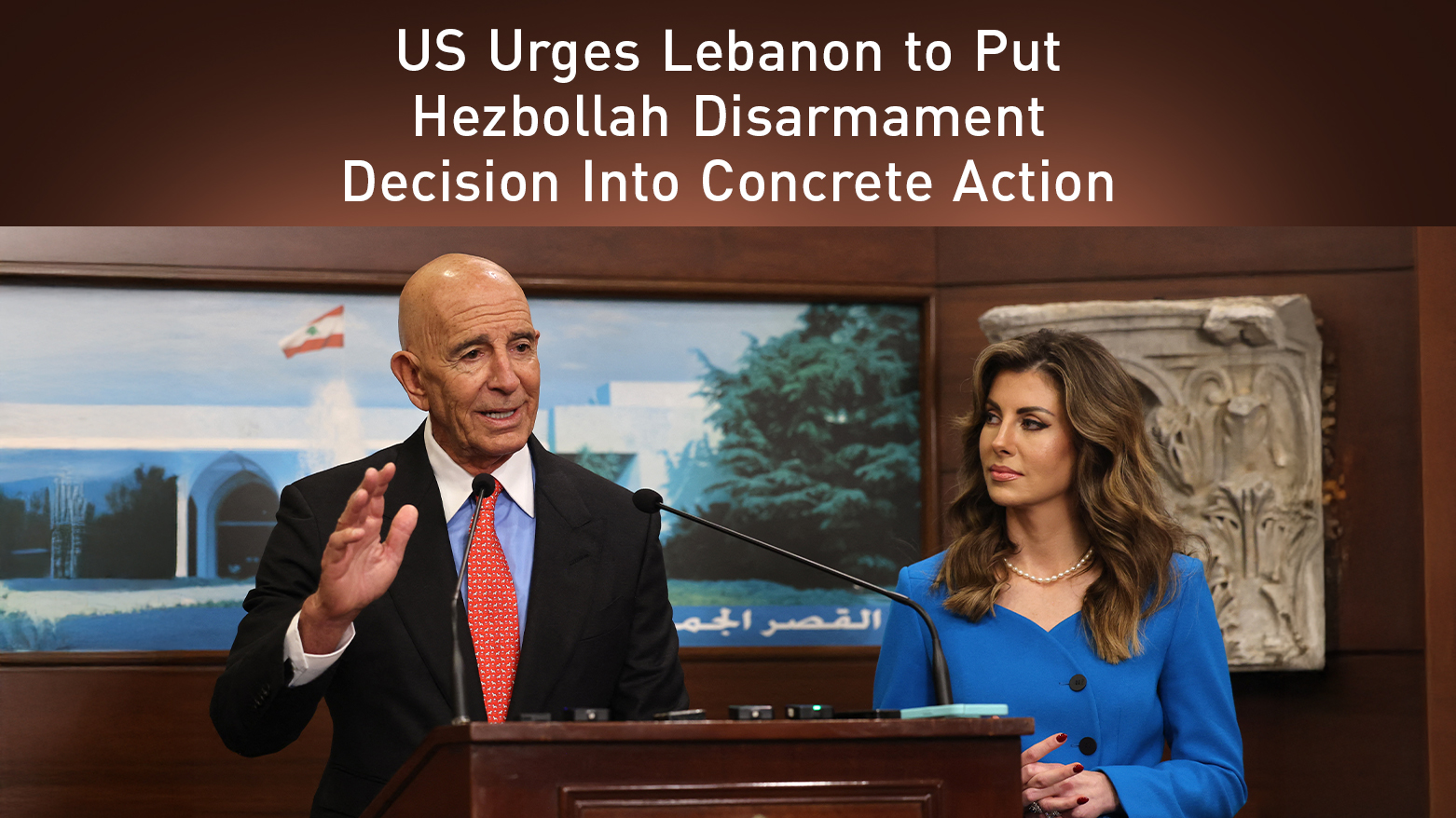US Urges Lebanon to Put Hezbollah Disarmament Decision Into Concrete Action
“Now it’s not about words, now it’s about action,” US envoy Morgan Ortagus told journalists at Lebanon’s presidential palace in Beirut.

ERBIL (Kurdistan24) — The United States on Tuesday pressed Lebanese authorities to translate their recent decision to disarm Hezbollah into concrete action, signaling that Israel would respond in kind to any steps taken by Beirut.
US envoy Morgan Ortagus told journalists at Lebanon’s presidential palace in Baabda that while Washington welcomed the government’s historic decision, “now it’s not about words, now it’s about action.” Her remarks followed meetings with President Michel Aoun, during which the delegation discussed the implementation of a plan to neutralize Hezbollah’s military capabilities.
Ortagus added that Israel is prepared to match Lebanese government measures, describing a phased approach to withdrawing troops: “It might be small steps… but they’re willing to go step by step with this government. So every step that the Lebanese government takes, we will encourage the Israeli government to make the same step.”
US envoy Tom Barrack, also part of the delegation, said the Lebanese army and government are expected to present a concrete disarmament plan by the end of the month. “When [the Israelis] see that, they will give their counterproposal of what they will do in withdrawals and security guarantees on their borders,” he said, describing the Israeli stance as “historic,” noting that officials “don’t want to occupy Lebanon” and are waiting to see Lebanon’s concrete plan.
The move comes amid ongoing pressure from Washington and concerns over potential renewed Israeli military action. Hezbollah, the Iran-backed militant group, has repeatedly refused to relinquish its weapons, despite being severely weakened during last year’s war with Israel.
Under the terms of a ceasefire brokered by the United States in November, Hezbollah is required to redeploy its fighters north of the Litani River, approximately 30 kilometers (20 miles) from the Israeli border, to be replaced by Lebanese troops and UN peacekeepers. In return, Israel is to fully withdraw its troops from positions it currently maintains at five strategic locations in southern Lebanon.
Prime Minister Benjamin Netanyahu on Monday indicated that Israel is prepared to consider a “phased” pullout of its remaining forces if Lebanon implements its disarmament obligations, highlighting a cautious, step-by-step approach to ensure security along the border.
The implementation of Lebanon’s plan to disarm Hezbollah remains a critical test for regional stability and the U.S.-brokered ceasefire, reflecting longstanding tensions between state authority and militant power in Lebanon.
Hezbollah, founded in the early 1980s with Iranian support, has long operated as both a political party and an armed militia within Lebanon, often acting independently of the central government. Its deep entrenchment in Lebanese politics, coupled with its military capacity, has created repeated tensions with Israel, particularly in southern Lebanon.
The group’s arsenal and regional ambitions have drawn international scrutiny, prompting multiple conflicts, most notably in 2006 and in cross-border skirmishes over the past decade.
The U.S. and its allies have consistently pressured Lebanon to assert state authority over armed groups, framing Hezbollah’s disarmament as a critical step toward national sovereignty and regional stability. At the same time, Hezbollah’s loyalty to Tehran complicates Lebanon’s political calculus, as the government must balance domestic factions and international expectations.
Successful implementation of a disarmament plan would mark a significant, though challenging, shift in Lebanon’s security landscape, potentially preventing future escalations along the Israel-Lebanon border.
